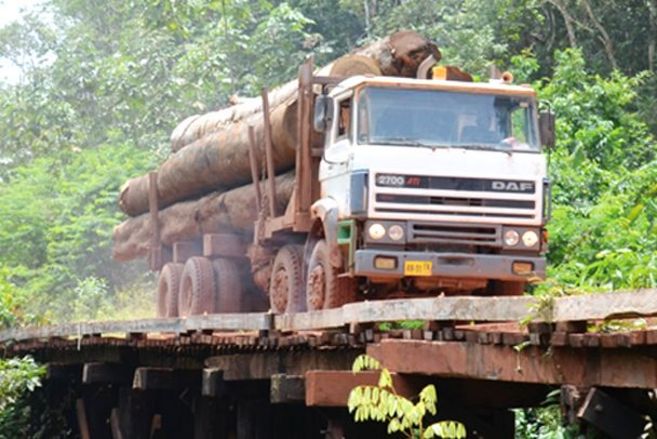Project
Cooperative business models for woodfuel
Development and economic analysis of innovative business models for sustainable regional production and utilization of woodfuel
Although dendromass is not suited for solid quality furniture, it is still gaining in demand In particular wood industry and to a significant extent the producers of bioenergy are the major consumers.
Background and Objective
Agriculture, forestry and landscapers supply woodfuel. However, woodfuel production and supply face different challenges depending on its origin: Main obstacles for cultivation of short rotation coppice are high investments, long capital commitment, land competition and a lack of knowledge. In forestry, particularly for the small private forest owners marketing and access to their forests are challenging economic viability. Our approach to overcome these challenges and to improve economic viability of fuelwood supply chains is to take advantage of co-operation and its synergistic effects by adopting the business model concept.
Approach
In close cooperation with the project partners we develop business models in terms of their structure, their financial and legal characteristics, the participation of actors as well as the value proposition and the value distribution.
Data and Methods
Our analyses are based on qualitative and quantitative surveys of actors in Germany. Furthermore, the analysis of on topic publications is the second pillar for the development of business models.
Results
Regional value chain-based business models were developed during the project period in the context of the energetic use of woody biomass. For this purpose, a first step was the conception, carrying out and assessment of a survey on the perspective of stakeholders in the context of the energetic use of woody biomass. The relevance of cooperation in this context was elaborated. As a result, generic business models were first generated, which then again were drawn into the regional context. A presentation framework was drawn by cooperation criteria based on varying cooperation intensities among the agents of the business models. Furthermore practical implications of varying cooperation intensities were analyzed and shown based on varying criteria.
Thünen-Contact

Involved external Thünen-Partners
-
Technische Universität Dresden
(Dresden, Tharandt, Deutschland) -
Leibniz-Institut für Länderkunde Leipzig e.V.
(Leipzig , Deutschland) -
Leibniz Universität Hannover
(Hannover, Deutschland) -
Martin-Luther-Universität Halle-Wittenberg
(Halle (Saale), Deutschland)
List of Publications
- 0
Boll T, Neubert FP, Zimmermann K, Bergfeld A (2015) Decision criteria and implementation strategies for short rotation coppice in Germany from the perspective of stakeholders. In: Butler Manning D, Bemmann A, Bredemeier M, Lamersdorf N, Ammer C (eds) Bioenergy from dendromass for the sustainable development of rural areas. Weinheim: Wiley-VCH, pp 331-346
- 1
Zimmermann K, Schweinle J (2015) Supply chain-based business models for woodfuel. In: Butler Manning D, Bemmann A, Bredemeier M, Lamersdorf N, Ammer C (eds) Bioenergy from dendromass for the sustainable development of rural areas. Weinheim: Wiley-VCH, pp 289-302
- 2
Bemmann A, Schweinle J (2015) The implementation of scientific research findings in policy making: challenges and contradictions highlighted by the example of short rotation coppice. In: Butler Manning D, Bemmann A, Bredemeier M, Lamersdorf N, Ammer C (eds) Bioenergy from dendromass for the sustainable development of rural areas. Weinheim: Wiley-VCH, pp 509-523
- 3
Zimmermann K (2014) Geschäftsfeld Energieholz - Das Lohnunternehmen Hüttmann. In: Gerold D, Schneider M (eds) Erfahrungsberichte zur Vernetzung von Erzeugern und Verwertern von Dendromasse für die energetische Verwertung. Leipzig: Leibniz-Institut für Länderkunde, pp 90-93
- 4
Zimmermann K (2014) Nahwärmenetz Bargstedt. In: Gerold D, Schneider M (eds) Erfahrungsberichte zur Vernetzung von Erzeugern und Verwertern von Dendromasse für die energetische Verwertung. Leipzig: Leibniz-Institut für Länderkunde, pp 66-70
- 5
Neubert FP, Boll T, Zimmermann K, Bergfeld A (2013) Aktuelle Hemmnisse und Empfehlungen für den weiteren Ausbau von Kurzumtriebsplantagen in Deutschland: Ergebnisse einer Online-Umfrage von Praktikern. Gülzower Fachgespr 43:257-266
- 6
Neubert FP, Boll T, Zimmermann K, Bergfeld A (2013) Chancen und Hemmnisse von Kurzumtriebsplantagen : Online-Umfrage unter Praktikern. AFZ Der Wald 68(4):4-6
- 7
Boll T, Neubert FP, Zimmermann K (2013) Großes Interesse - geringer Anbau. Joule(2):76-77
- 8
Wagner P, Schweinle J, Setzer F, Kröber M, Dawid Martin (2012) DLG-Standard zur Kalkulation einer Kurzumtriebsplantage. Frankfurt a M: DLG, 26 p, DLG Merkbl 372
- 9
Schweinle J, Zimmermann K (2011) Innovative Geschäftsmodelle für die Bewirtschaftung von KUP. In: Bemmann A, Franke E (eds) Chancen und Hemmnisse für die Energieholzproduktion aus Kurzumtriebsplantagen : Fachtagung ; Tharandt, 20.-21. Oktober 2011. Dresden: Inst für Internat Forst- und Holzwirtschaft, pp 69-78
Funding Body
-
Federal Ministry of Research, Technology and Space (BMFTR)
(national, öffentlich)
Duration
1.2011 - 12.2014
More Information
Project funding number: 033L024C
Project status:
finished








